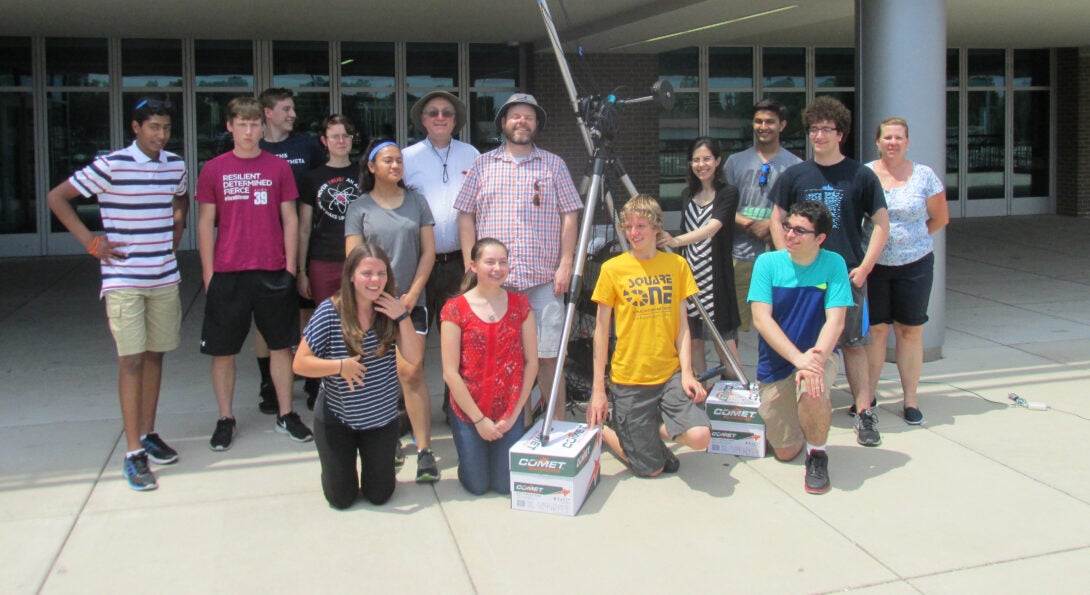Summer Workshop 2017

June 12, 2017 - June 16, 2017
The theme for activities during the entire year was established by Fellow Nate Unterman: “Does the cosmic ray flux change during a total solar eclipse?” Beginning in February and continuing through the fall, students and teachers created and carried out an experiment to measure cosmic ray rates during the eclipse and compare those rates during normal, non-eclipse conditions. The project was advertised QuarkNet-wide and over 30 high school groups around the country participated.
https://sites.google.com/view/quarknet2017eclipse/home
Detectors were designed as a compromise between gathering enough data during the eclipse and pointing resolution in the direction of the sun. Two designs utilizing the existing QuarkNet CRMDs were developed: a fixed-angle telescope where the sun traversed its acceptance over time; and a telescope on a mount that could track the sun. Students produced several prototypes, gradually increasing the frames rigidity and construction simplicity, keeping costs below $100. Centers all around the US built detectors based on those designs.
During the UIC summer workshop students assembled final prototypes, made basic cosmic rate measurements as a function of zenith angle and orientation, and tested tracking schemes. A first attempt was made to observe the shadow that the sun and moon cast in cosmic rays, as compared to rates during periods of empty sky.
Attendees of the summer workshop held at Naperville Central High School from June 12-16, 2017, included 5 teachers and 16 students from 6 high schools: Downers Grove South, Ida Crown Jewish Academy, Glenbrook North, Glenbrook South, Naperville Central, and Rochelle Zell Jewish High School, as well the UIC faculty mentor. Participants also visited Fermilab, touring the D0 detector in the Tevatron. The students presented their Cosmic Ray results to each other during the last day of the workshop and created posters in e-Lab. Abstracts were drafted for an AAPT conference in January where the UIC group plans to present their eclipse results.